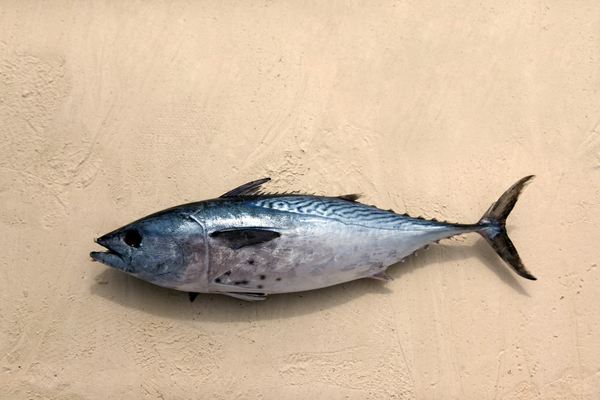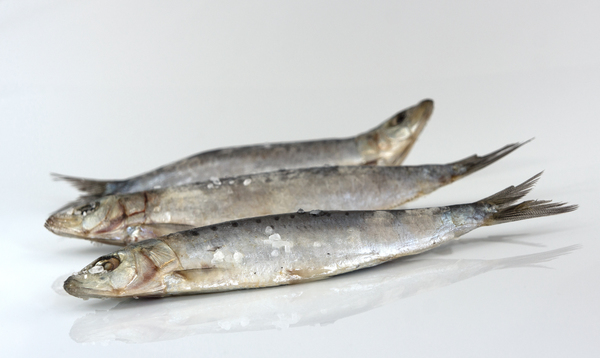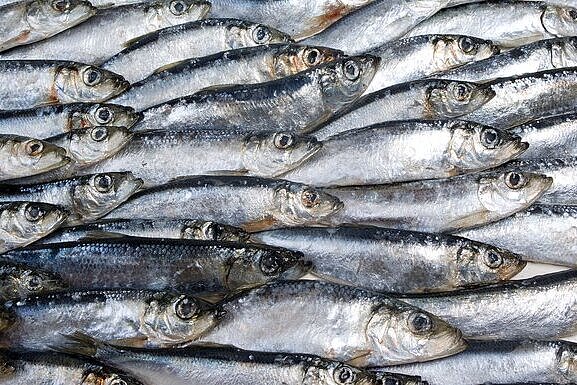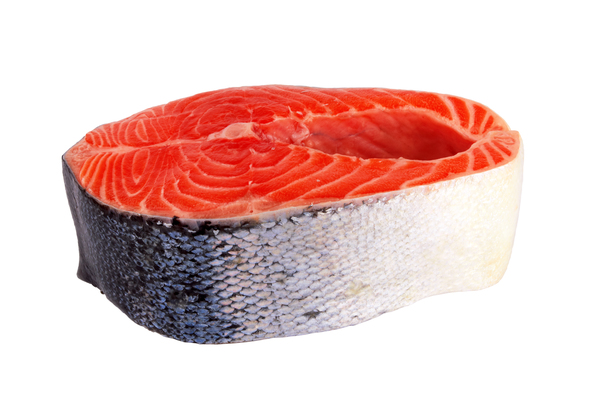Mackerel
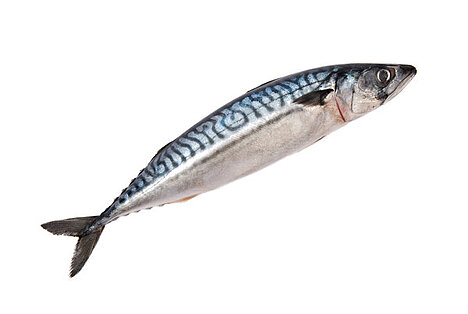
Benefits of mackerel for dogs
Mackerel has many benefits for dogs that can promote both physical and mental health. Here are some of them:
- Mackerel is a high-quality source of protein, which is important for muscle building, wound healing and immune defense in dogs.
- Mackerel is high in omega-3 fatty acids, which are anti-inflammatory and can support dogs' skin, coat, joints, heart and brain.
- Mackerel provides many vitamins, such as vitamins A, B, D and E, which are important for vision, nerve function, bone formation and cell health in dogs.
- Mackerel contains many minerals, such as iodine, selenium, zinc and iron, which are important for thyroid function, blood formation, wound healing and the immune defense of dogs.
Disadvantages of mackerel for dogs
Mackerel also has some disadvantages for dogs that you should consider before feeding it to your dog. Here are some of them:
- Mackerel may contain contaminants such as mercury, dioxins or PCBs that can accumulate in their fatty tissues. These can be harmful to dogs' health if ingested in excessive quantities.
- Mackerel can contain bones, which can be dangerous for dogs if swallowed. They can injure or block the esophagus, stomach or intestines of dogs.
- Mackerel may contain thiaminase, an enzyme that breaks down vitamin B1 (thiamine). This can lead to a vitamin B1 deficiency in dogs if they eat too much mackerel.
How to feed mackerel to dogs correctly
If you want to feed mackerel to dogs, you should follow some tips to maximize the benefits and minimize the disadvantages. Here are some of them:
- Choose mackerel from sustainable and controlled fisheries that contain as few contaminants as possible. You can look for labels such as MSC or ASC.
- Remove all bones from the mackerel before giving it to your dog. You can also mash or chop the mackerel to make sure there are no bones left.
- Boil or steam the mackerel before feeding it to your dog. This will reduce the contaminants and thiaminase in the mackerel. Avoid frying or grilling the mackerel as this can destroy the omega-3 fatty acids.
- Only feed mackerel as a supplement to your dog's normal food. The amount depends on your dog's size, age and activity level. As a rule of thumb, you should not cover more than 10 percent of your dog's daily energy requirements with mackerel.
- Don't feed mackerel every day, but alternate it with other types of fish or meat. This will ensure a balanced diet for your dog and avoid an overdose of harmful substances or thiaminase.
- Observe your dog's reaction to the mackerel. Some dogs may be allergic or intolerant to mackerel or other types of fish. If you notice symptoms such as itching, diarrhea, vomiting or shortness of breath in your dog, you should stop the mackerel immediately and consult a veterinarian.
Mackerel is a healthy and tasty fish for dogs that has many health benefits. Mackerel can support dogs' skin, coat, joints, heart and brain and provide them with important nutrients. However, mackerel also has some disadvantages that you should be aware of before feeding it to your dog. Mackerel can contain contaminants, bones or thiaminase, which can be harmful to dogs. Mackerel should therefore only be fed as a supplement to your dog's normal food, in moderation and well prepared.
If you notice any signs of hypersensitivity or poisoning in your dog, you should see your vet immediately. We are not a substitute for a vet, but we try to be as accurate as possible. Every dog reacts differently and we recommend you get a second opinion or consult your vet if in doubt.
Stay healthy and take good care of your four-legged friend!😊
Similar to Mackerel
Tuna is a large, fast and powerful fish that can be found in all the world's oceans. It belongs to the mackerel family and can grow up to three meters long and weigh 600 kilograms. Tuna is mainly...
Sardines are fish that grow to between 10 and 25 centimetres in length and are found in many of the world's oceans. They feed mainly on plankton and are even hunted by larger fish, birds and marine...
Herring are a bony fish that can be found in almost all of the world's oceans. The best-known representative is the Atlantic herring, which is also caught in the North and Baltic Seas. Herring grow...
Salmon are fish that live in cold waters and feed mainly on plankton, crustaceans and smaller fish. There are different types of salmon, for example Atlantic salmon, Pacific salmon or salmon trout....
